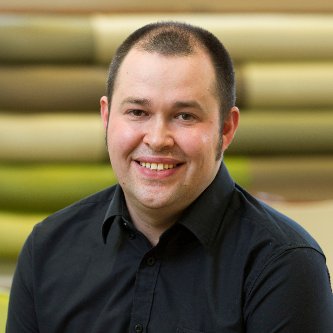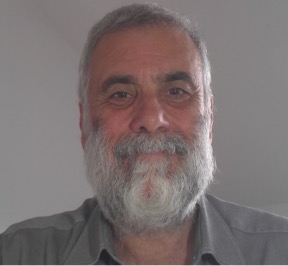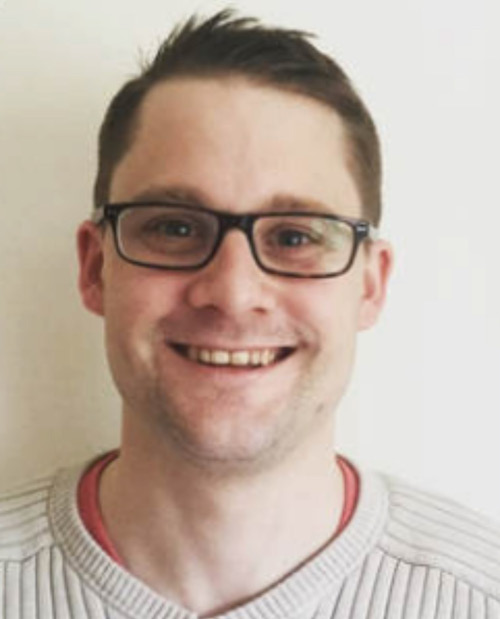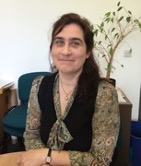When: 9 May 2023, 15:00 BST
Where: Online
The UK Catalysis Hub are hosting a webinar on opportunities in chemical sciences with a next generation XFEL.
In this webinar we will briefly overview the questions: what is an XFEL and what can they do in chemical sciences? We will discuss how time-resolved x-ray spectroscopy gives new insights and understanding. We will report on work already carried out and future potential in the study of chemical dynamics. Future opportunities in studying ultrafast dynamics of electron and energy transfer using THz/IR activation of chemical dynamics and opportunities in catalysis research will be discussed.
Speakers:
Jon P Marangos (Imperial), Julia Weinstein (Sheffield), Rebecca Ingle (UCL), Andrew Burnett (Leeds) and Thomas Penfold (Newcastle) – (UK XFEL Chem Team).

Andrew Burnett
Andrew D. Burnett completed his undergraduate studies in chemistry with forensic science at the University of Bradford, in 2004 and received his Ph.D. in electronic and electrical engineering from the University of Leeds, in 2008, after. He then completed a number of PDRA positions at Leeds focused on the use of THz spectroscopy for biological and chemical applications which he continued while moving to the Faculty of Biological Sciences at the University of Leeds in 2011 as an EPSRC Postdoctoral Fellowship. In 2015 he then moved to the School of Chemistry at the University of Leeds, firstly as a Teaching Fellow for Physical Chemistry and from 2017 as an EPSRC Early Career Fellowship and University Academic Fellow. In 2022 he was then promoted to Associate Professor. His current research focusses on the understanding of THz spectra of crystalline materials and the development of Nonlinear THz spectral measurements.
Rebecca Ingle
Rebecca Ingle is a Lecturer in Physical Chemistry at University College London where she uses a variety of X-ray and optical spectroscopies to investigate photoinduced processes in molecules in the gas and solution phase. Some of her recent work includes the development of resonant Auger spectroscopy for polyatomic systems and the use of multi-site X-ray probes to investigate the ultrafast dynamics in molecular systems.

Jon P Marangos
Jon Marangos is Director of the Blackett Laboratory Extreme Light Consortium and Lockyer Professor of Physics at Imperial College. He graduated from Imperial College obtaining a BSc in 1982 and a PhD in 1986. In 1990 he was appointed an EPSRC Advanced Fellow during which time he was a Visiting Researcher at NIST, Gaithersburg USA and a Visiting Professor at the University of Tokyo. He was appointed a Lecturer in Physics at Imperial in 1995 and a Reader in 1999. In 2002 he was made Professor of Laser Physics and subsequently appointed to the Lockyer Chair in Physics. He served as the Head of the Quantum Optics and Laser Science Group from 2003-2008. He has ben the Principal Investigator of a number of EPSRC large grants including “Attosecond Electron Dynamics in Molecular and Condensed Phase Matter” and the first US-UK MURI “Fundamental Strong Field Interactions with Ultrafast, Mid-Infrared Lasers” and has been awarded an ERC Advanced Grant on “Attosecond Science by Transmission and Emission of X-rays (ASTEX)” (2012).
His major areas of research activity are in: (1) development of experimental methods for the measurement of processes on the attosecond time-scales; (2) non-linear optical processess for generation of coherent soft X-ray and VUV radiation and applications of these sources in atomic, molecular and muon physics; (3) High intensity laser- matter interactions especially looking at interactions with molecules and clusters; (4) investigation of atomic and molecular coherence effects (e.g. EIT) and enhanced non-linear frequency mixing. Recently he has been looking at the problems of controlling the electron dynamics driven in complex systems by strong laser fields and in developing high power sub-femtosecond light sources. He is involved in free electron laser science having led the UK New Light Source Project from 2008-2010 and been Science Lead of UK XFEL project since 2019. He is an active participant in experiments at LCLS, SLAC, USA and FLASH, DESY, Hamburg. Working with LCLS and DESY he has pioneered the use of XFELs for measuring sub-femtosecond timescale electron dynamics in matter. He is a Fellow of the Optical Society of America and the Institute of Physics.

Thomas Penfold
Thomas Penfold is an EPSRC Open Fellow and Professor of Computational Chemistry at Newcastle University. His current research interests include quantum dynamics, time-resolved spectroscopy and excited state dynamics of organic and inorganic systems.

Julia Weinstein
Julia Weinstein is a Professor of Physical Chemistry, and head of Lord Porter Laser Laboratory, at the University of Sheffield.
Her expertise lie in photochemistry and molecular photophysics in condensed phase, with particular emphasis on the development of new approaches to controlling fundamental light-induced properties, electron and energy transfer, and ultrafast structural dynamics, in light-harvesting molecules and materials. The primary tools are ultrafast time-resolved electronic and vibrational spectroscopies, including transient absorption, TRIR, 2DIR, and fluorescence upconversion, and the recent interest in time-resolved X-ray spectroscopy and X-ray free-electron lasers.
Julia co-authored over 120 publications in various areas of photochemistry and ultrafast dynamics, in collaboration with PhD students and post-doctoral researchers in her group, with the Laser for Science Facility, and with scientists around the world.
She was awarded Royal Society of Chemistry Chemical Dynamics Award in 2017 for the original approach to controlling ultrafast charge transfer reactions in solution using mode-specific IR-excitation.
Julia has served on multiple facility access panels, including the Steering Committee of the EU Free Radical Research Facility (Daresbury, UK, 2005 – 2008); on the STFC LSF Facility Access Panel (2018 – 2022), and, currently, Facility Access Panel to the FXE beamline of the EU XFEL. She is part of UK XFEL Project science team, co-leading the Chemical Sciences section.
Watch a recording of the webinar below:




